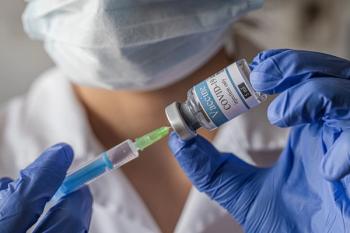
Apellis submits NDA to FDA for geographic atrophy treatment
A decision by the FDA is expected in August 2022.
Apellis Pharmaceuticals announced Wednesday that it has submitted a New Drug Application (NDA) to the US Food and Drug Administration (FDA) for intravitreal pegcetacoplan for the treatment of geographic atrophy (GA) secondary to age-related macular degeneration (AMD).
As an investigational targeted C3 therapy, pegcetacoplan is the only treatment that has shown potential to meaningfully slow disease progression across three large studies with a representative, real-world population of GA patients, according to Jeffrey Eisele, PhD, Apellis chief development officer,
According to the company, the recent NDA submission is based on results from the DERBY and OAKS phase 3 studies at 12 and 18 months, as well as the FILLY phase 2 study at 12 months.
Per the company, the DERBY and OAKS studies are multicenter, randomized, double-masked, sham-controlled phase 3 studies that have enrolled 621 patients and 637 patients, respectively. The studies are comparing the efficacy and safety of pegcetacoplan with sham injections in patients with GA secondary to AMD.
The FILLY study, a phase 2, multicenter, randomized, single-masked, sham-controlled study with 246 participants enrolled, evaluated the efficacy and safety of pegcetacoplan in patients with GA secondary to AMD, according to the company. The study’s primary objective was to evaluate the efficacy of pegcetacoplan in patients with GA assessed by change in square root GA lesion size from baseline as measured by fundus autofluorescence at 12 months followed by six months of monitoring after the end of treatment, the company stated.
In all three studies, both monthly and every-other-month treatment of pegcetacoplan resulted in a clinically meaningful reduction of lesion growth across a broad, heterogenous population of over 1500 patients, the release stated. A favorable safety profile was demonstrated for pegcetacoplan in all three studies.
A decision by the FDA on Apellis’s NDA filing acceptance is expected in August 2022. Additionally, the company plans on submitting a marketing authorization application to the European Medicines Agency (EMA) in the second half of 2022.
Newsletter
Want more insights like this? Subscribe to Optometry Times and get clinical pearls and practice tips delivered straight to your inbox.




























